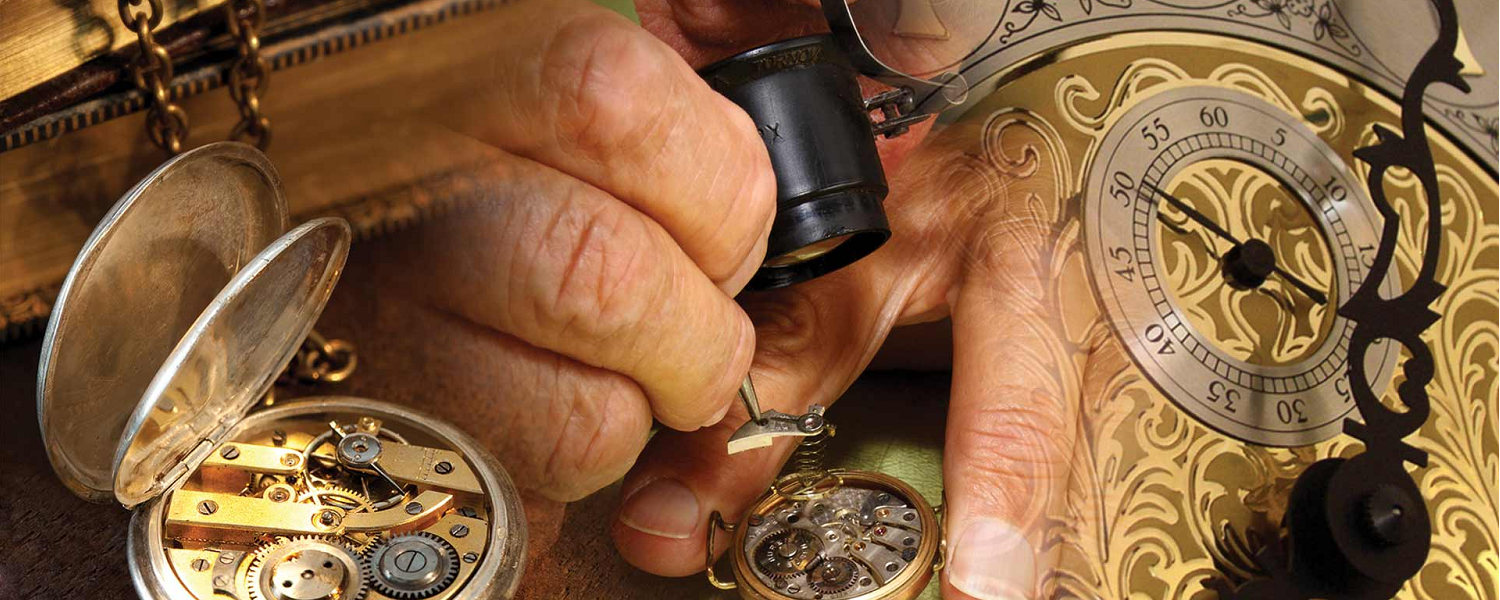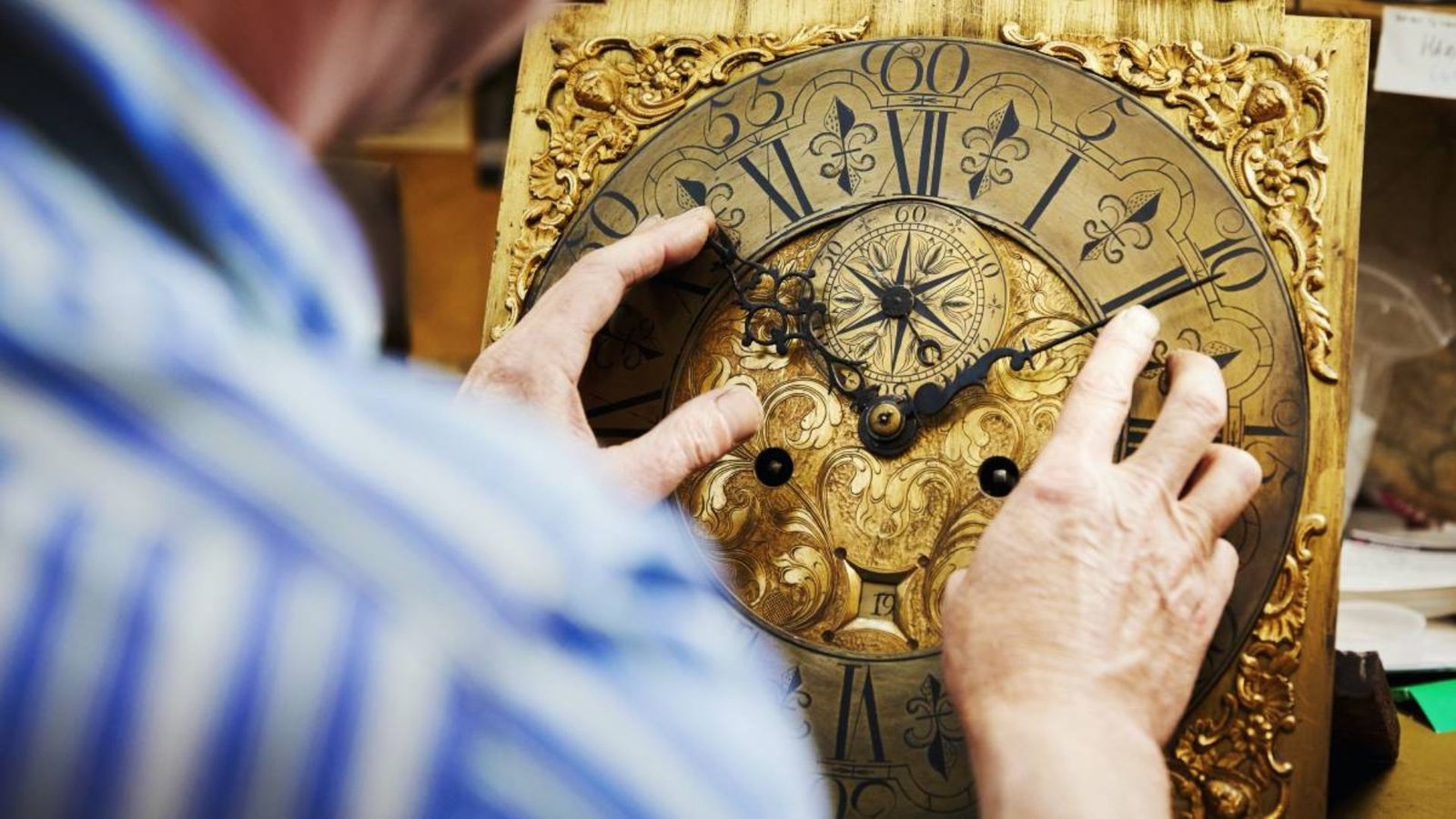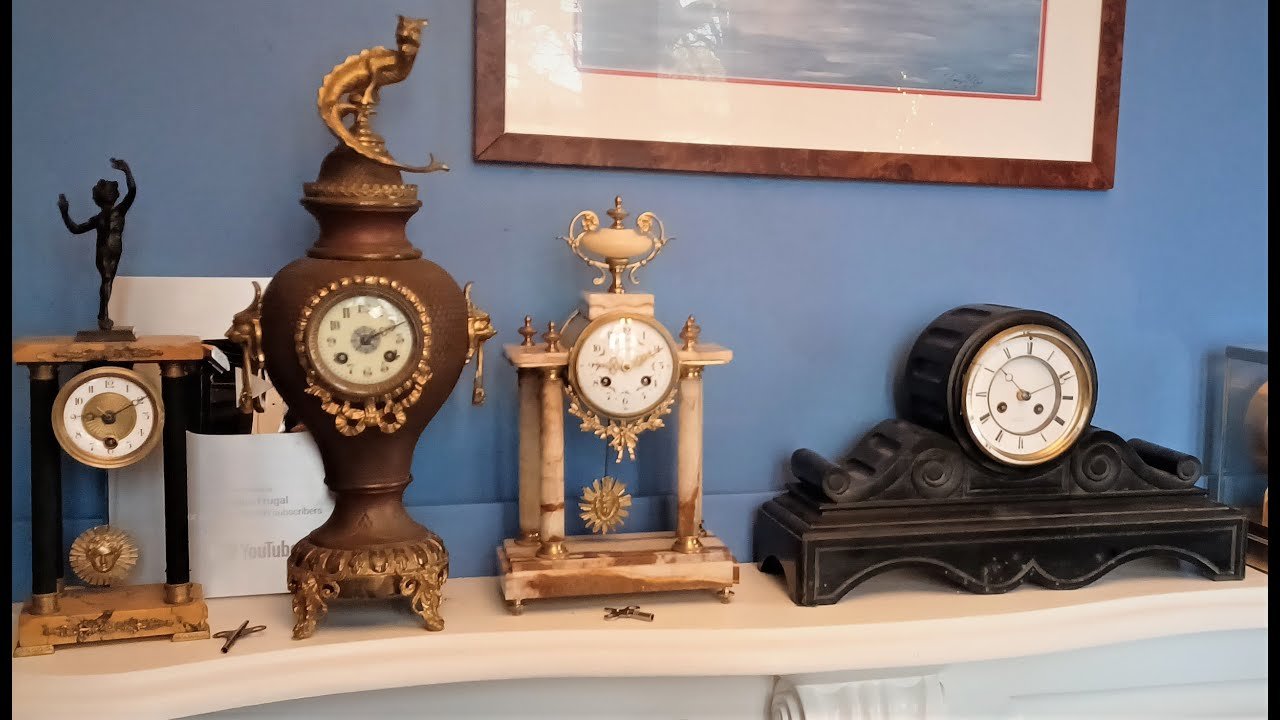Clock repair can be an essential service for maintaining the functionality and aesthetic of your timepieces. However, understanding the costs involved can help you make informed decisions and manage your budget effectively. This guide explores the factors affecting clock repair costs, common types of repairs, and what to expect when seeking professional services.
Factors Influencing Clock Repair Costs
- Type of Clock
- Quartz Clocks: Generally, repairs for quartz clocks are less expensive compared to mechanical or antique clocks. Common repairs include battery replacement and fixing minor issues with the movement.
- Mechanical Clocks: Repairs for mechanical clocks can be more costly due to their intricate components and the need for specialized skills. Issues might include gear replacements, lubrication, and alignment adjustments.
- Antique Clocks: The repair costs for antique clocks can be higher due to their rarity and the need for expert handling to preserve their value. Repairs may involve restoring delicate parts and finding specific replacements.
- Nature of the Problem
- Minor Repairs: Issues like replacing batteries, adjusting hands, or minor lubrication are usually inexpensive. These can often be handled by the clock owner or a general repair technician.
- Major Repairs: Significant problems such as broken gears, malfunctioning chimes, or damaged movements require more intensive work and can be more costly. Major repairs might also involve sourcing rare parts or extensive labor.
- Parts Replacement
- Standard Parts: Replacing standard parts, such as clock movements or hands, tends to be relatively affordable. The cost depends on the quality and brand of the replacement parts.
- Custom or Rare Parts: If your clock requires custom or rare parts, the cost can be significantly higher. Antique clocks, in particular, may need parts that are difficult to find or manufacture, increasing repair costs.
- Labor Costs

Hourly Rates: Professional clock repair specialists typically charge by the hour. Rates can vary based on the technician’s experience, the complexity of the repair, and geographic location.
-
- Flat Fees: Some repair services offer flat fees for specific types of repairs or maintenance. This can provide a predictable cost for common issues.
- Expertise Required
- General Repair Technicians: Basic repairs can often be performed by general technicians or hobbyists at a lower cost.
- Specialized Clockmakers: For intricate or antique clocks, specialized clockmakers with expertise in restoring complex timepieces are required. Their services tend to be more expensive due to their skill level and the specialized tools they use.
Common Types of Clock Repairs and Their Costs
- Battery Replacement
- Cost: Typically $10 – $30
- Details: Replacing the battery is one of the simplest and most cost-effective repairs. It usually involves purchasing a new battery and installing it.
- Mechanical Movement Overhaul
- Cost: $150 – $500
- Details: This includes disassembling the clock, cleaning, lubricating, and reassembling the movement. Major issues like broken gears may increase the cost.
- Chime Mechanism Repair
- Cost: $100 – $400
- Details: Repairing or adjusting the chime mechanism involves fixing or replacing components that produce the clock’s sound.
- Antique Clock Restoration
- Cost: $300 – $1,000+
- Details: Restoring antique clocks can be costly due to the need for precision work, rare parts, and expertise. This process includes cleaning, repairing, and often restoring cosmetic elements.
- Custom Part Fabrication
- Cost: Varies significantly
- Details: If your clock requires a custom part that isn’t readily available, the cost can vary based on the complexity and the manufacturer.
Tips for Managing Clock Repair Costs
- Get Multiple Quotes: Before committing to a repair, obtain quotes from several technicians to compare costs and services. Ensure that you understand what is included in each quote.
- Prioritize Repairs: Determine which repairs are essential and which can be postponed. Addressing urgent issues first can help manage costs.
- Consider DIY Repairs: For minor issues, such as replacing batteries or adjusting hands, consider handling these tasks yourself if you have the necessary skills.
- Invest in Maintenance: Regular maintenance can prevent major issues and extend the lifespan of your clock. Periodic servicing by a professional can help avoid costly repairs in the future.
- Preserve Value: For valuable or antique clocks, investing in professional repair and restoration is often worthwhile to maintain their value and functionality.
Conclusion
Understanding the costs of clock repair involves recognizing the type of clock, the nature of the problem, and the expertise required for the repair. By being informed about the potential expenses and considering factors such as parts replacement and labor costs, you can make better decisions about maintaining and repairing your timepieces. Whether you’re dealing with a modern quartz clock or a cherished antique, proper care and timely repairs will ensure your clock continues to function accurately and beautifully.





Sind Freispiele ohne Einzahlung oder Echtgeld Boni ohne Einzahlung häufiger?
Insgesamt kannst du hier bis zu 100€ gewinnen. Waltenberg hat Tausende von Online-Casinos, Spielautomaten und Casinospielen überprüft und verfügt über fundierte Kenntnisse
zu Boni und Spielautomaten. Egal ob Du einen Echtgeld Bonus ohne Einzahlung oder Freispiele ohne Einzahlung zur Verfügung gestellt bekommst,
es kommt am Ende immer auf die Bonusbedingungen an. Echtgeld Bonus oder Freispiele ohne Einzahlung – was ist besser?
Von wenigen Ausnahmen abgesehen, ist der Hausvorteil
bei Online Roulette Tischspielen meist sehr gering,
und daher gibt es diesen Bonus im Live-Casino nicht.
Meistens bekommst du von seriösen Online Casinos sogenannte Bonus Codes
zugeschickt, die du bei der Einzahlung von Echtgeld angeben musst,
um deinen Bonus zu erhalten. Aus diesem Grund sind Freispiele bei den Spielern so unglaublich beliebt,
denn mit diesen kannst du Casino Spiele quasi umsonst spielen. Wenn
du Freispiele für Spielautomaten verwendest, musst
du überhaupt kein Geld bezahlen, um zu spielen! Freispiele sind der
Schlüssel zum kostenlosen Spielen von Casinospielen.
Du probierst vor allem neue Slots aus und spielst mit
gratis Guthaben. Und nicht vergessen, dass Glücksspiele nur für Personen ab 18 Jahre legal sind!
Wir machen unsere Arbeit, damit du sicheren Spaß in seriösen Online Casinos
mit gratis Startguthaben oder auch ohne Bonus haben kannst.
Ein Bonus ohne Einzahlung hat viele Vorteile, garantiert dir aber keinen gratis Gewinn.
References:
https://online-spielhallen.de/wazamba-casino-deutschland-ein-umfassender-testbericht-fur-deutsche-spieler/
Das Motel 6 Las Vegas, NV – Strip bietet klimatisierte Zimmer und befindet sich im Stadtviertel
San Lorenzo, 20 Minuten Gehweg vom Planet Hollywood Resort and Casino
entfernt. Ungefähr 3 Kilometer vom Mandalay Bay Resort and Casino entfernt gelegen, bietet das
3-Sterne-Flamingo Las Vegas Hotel & Casino 146 Zimmer an. Vollständig aus natürlichen Werkstoffen wie Holz und istrischem Kalkstein errichtet,
liegt das Gebäuden auf Sanddünen, die eine herrliche Sicht auf die Adria bieten. Nach einer Beratung mit
unseren Beauty-Spezialistinnen erhältst du eine kostenlose, individuell abgestimmte Behandlung sowie täglichen Zugang
zum Thalassotherapie-Raum. Das Hotel Home2 Suites By Hilton Las Vegas Northwest ist
eine tolle Unterkunft im Naturschutzgebiet von Las Vegas, das auch nur 3 km vom Mount Charleston entfernt
liegt.
1988 wurde der 24-stöckige Monaco-Tower fertiggestellt und
verdoppelte die Zimmerzahl auf 2100. Im Jahr 1975 wurde der 17-stöckige
Monte-Carlo-Tower hinzugefügt. Die Komiker Harpo und Gummo Marx,
bekannt als Marx Brothers hielten ebenso wie Entertainer Dean Martin einmal finanzielle Anteile am Hotel.
Das Riviera war das erste mehrstöckige Gebäude am Las
Vegas Strip mit neun Stockwerken.
References:
https://online-spielhallen.de/legiano-casino-erfahrungen-ein-umfassender-uberblick/
Overall, the casino stands among the most trusted online
gaming platforms for Australians who enjoy real money play, strong security, and reliable bonuses.
This dedication totechnological excellence ensures that RocketPlay casino Australiaprovides a truly premium experience
for Australian players, putting itamong the top options for real
money casino games enthusiasts. Yes, some online casinos in Australia for real money process and deliver withdrawals in 24 – 48 hours.
You won’t find any dodgy game results here everything’s tested by third-party labs like iTech Labs or GLI to keep the pokies honest.
It’s a slick setup with thousands of pokies, regular reload deals, and crypto support that actually works
— no shady workarounds. Rocketplay casino knows exactly what Aussie punters
are chasing — fast action, easy cashouts, and zero fluff.
The whole platform feels made for players who want action without the wait.
Blackjack, roulette, game shows — it all runs in real time with zero lag.
This professional approach is often highlighted in RocketPlay Casino reviews from Australian players.
Payments must originate from methods in your own name, and support will ask for verification if activity changes
sharply. Lukki Casino Canada keeps the serious pages—Terms, Privacy, Responsible Gaming—easy to
find. Transparency is not a buzzword here; it is the
day-to-day experience. Slot engines rely on certified
RNGs, while live rooms are run by studios with their own oversight.
Lukki Casino outlines account checks, fraud controls, and
data handling standards in its help centre.
Despite the abundance of live casino options, Lukki’s table game and poker offerings really shine.
The deposit bonuses each have a 40x wagering requirement.
For the second through to fourth deposits, be sure to insert the correct
bonus code when popping in your deposit to reap maximum bonuses.
The welcoming offers and bountiful promotions at Lukki also play a key role in enticing punters.
People who write reviews have ownership to edit or delete them at any time, and they’ll be displayed as
long as an account is active.
References:
https://blackcoin.co/bestes-echtgeld-online-casinos-in-deutschland/
With the massive list of games and offers available,
it can be complicated for new players to find the best casinos online.
The difference between online casinos and real money casinos comes down to
how you play and whether you can win actual cash. Yes,
Australians can play real money online casinos without any issues.
If you visit any of the online casino websites on display, you will notice that many
of them offer a wide library of games to check out.
Jacks Or Better and Deuces Wild are classics, but some sites offer 20+ different versions.
Some sites also offer options like Lightning Baccarat or No Commission Baccarat, which tweak the pace or payout structure.
Baccarat is one of the easiest card games to
get into.
References:
https://blackcoin.co/australia-mobile-casinos-apps-the-complete-guide/
Register your details to be in the know for our latest news
and offers. Our in-house retailer offers a range of luxury Crown products available
for purchase, including a select range of Crown linen and At Home products.
Crown features two car parks in Melbourne, with over 5,000 parking spaces
as well as valet parking services, for your convenience.
And dive into world-class gaming and entertainment experiences.
Members of the casino’s VIP club will be happy to know that there are rewards and discounts on offer
all-year round.
Enjoy relaxed shopping with extended hours, valet parking, and indoor walkways connecting
shops, restaurants, and the casino floor. Crown Melbourne is home to a hand-picked collection of high-end boutiques offering the latest in fashion, accessories,
and lifestyle. Whether you’re celebrating a special
occasion or grabbing a late-night bite after a gaming session, Crown Melbourne’s
culinary offerings elevate every moment. Australia’s most iconic casino experience is
now available on any device — anytime, anywhere.
Crown Promenade offers affordable luxury with stylish rooms and thoughtful amenities.
It features sleek urban design, spacious rooms, a sky-high infinity pool,
and one of Melbourne’s most stunning hotel lobbies.
References:
https://blackcoin.co/vip-casinos-in-canada-2022/
paypal casino android
References:
gomyneed.com
online casino paypal einzahlung
References:
atpo.ca
online pokies paypal
References:
pharmakendra.in
online pokies paypal
References:
jokakiki.shop
online betting with paypal winnersbet
References:
https://thehrguardians.com/employer/casino-game-wikipedia/
us online casinos that accept paypal
References:
https://hirepestpro.com/employer/top-10-online-casinos-youd-enjoy-playing-at-in-2025-updated/
**mitolyn**
Mitolyn is a carefully developed, plant-based formula created to help support metabolic efficiency and encourage healthy, lasting weight management.